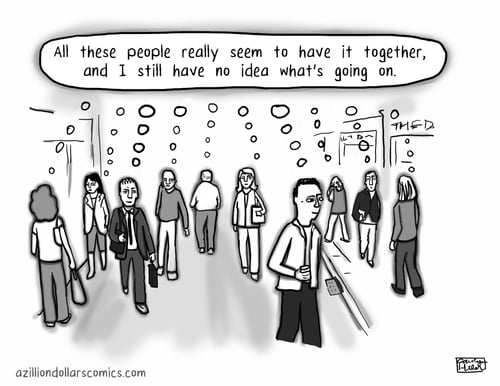The Boardroom Bystander Effect
Coming out of the 2023 GovernWith Contemporary Governance Risks Whitepaper, there was an interesting phenomenon we saw trending through the data. The data collected had more than 2,000 individual contributions across both the Board Governance Review and the Director Skills Matrix. These two assessments meet two different criteria and require different “context hats” worn when completing them. The Board Governance Review is answered by an individual’s gauge, or evaluation, of how assured the board is that the whole organisation (board and executive included) are delivering on their Corporate, Sector Specific and Contemporary Governance roles and responsibilities. The Director Skills Matrix is answered by an individual considering their own understanding, qualifications and experience in relation to their Sector, Professional and Contemporary skills, measuring their level of capability.
While not entirely reflective of the psychological definition “an individual being less likely to help a person in need while in the presence of others”, the core message that bystanders often assume someone else will step in, is what we want to highlight.

The diffusion of responsibility, particularly in contemporary governance issues, was demonstrated when comparing an individual’s view of the organisation’s capacity overall - often being quite positive, yet individually most in these same areas indicated their own capabilities were foundational. This emphasises, and gives evidence to, an attitude of pluralistic ignorance where boards may not have the ability to recognise or ask the right questions around trends and issues, if each of them is expecting another to have the educated knowledge and experience to be the voice in those areas.
If a board has reflected in the Governance Review that the organisation are highly proficient in a particular area, but the group results of the individual skills matrix indicate most directors are foundational in their own capabilities - these results don’t align and give urgency to the risks and impact of bystander thinking.
What a fantastic opportunity we have through this data in how we can individually reflect and respond. Shown through centuries of evolution and human behaviour we witness the ultimate benefits of being altruistic, curious and community serving. It’s up to each of us to make having an educated foundation for our thinking important, and to show initiative in seeking out that self development. These human centric trends and issues we see at the forefront of governance now are everybody’s responsibility. For a board, executive and whole organisation to be its most capable and sustainable, every member needs to be a participator in their ongoing development, training and preparation in contributing to these conversations. In 2024 our goal at GovernWith is to ignite and support proactive participation, leaving bystander apathy behind in 2023.